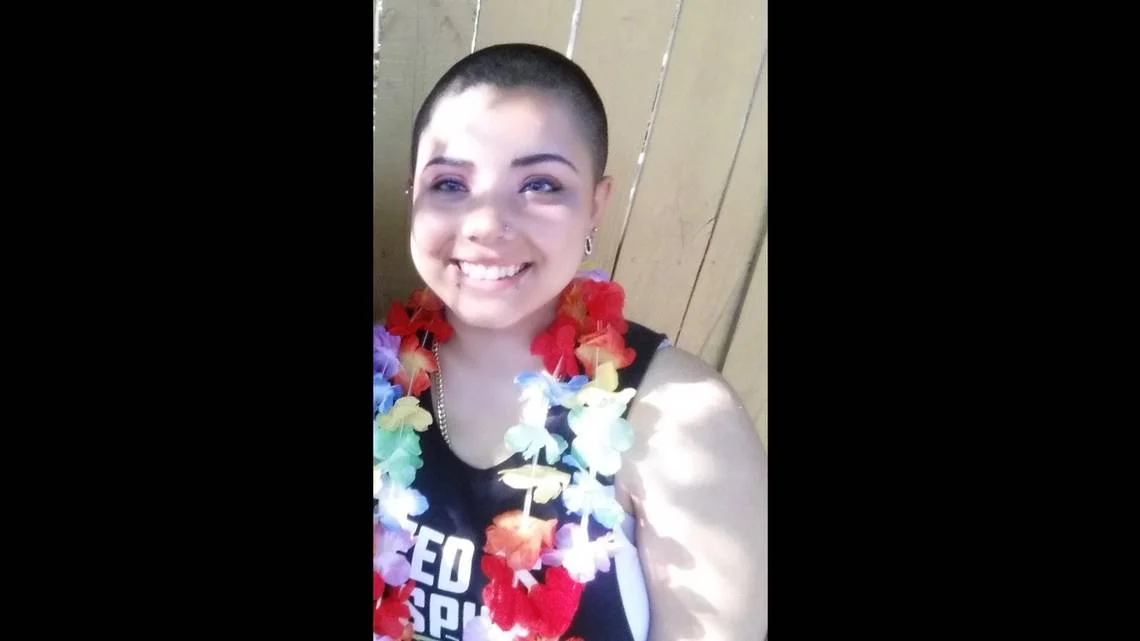All in Juvenile Justice News
A newspaper investigation has found that one in five victims of possible child trafficking in Kansas are placed in juvenile detention, a process that experts say hampers the effort to heal them.
Following the execution of a 15-year-old in Iran on Wednesday – the fourth juvenile to be put to death in the country this year – the United Nations rights chief condemned the practice, citing the strict prohibition of such executions under international law.
Like many of the challenges facing the nation’s collective corrections system, such as overcrowding and sentencing disparities, these issues arose mostly in response to the “get tough on crime” political environment that emerged in the 1980s in response to rising crime rates and spreading drug-related violence. The pendulum has begun to swing back toward moderation, and in 2017 several state legislatures passed significant reforms to their juvenile justice systems.
ROCKFORD — Young adults charged with misdemeanor crimes could have their cases transferred to juvenile court under legislation being considered by the Illinois House.
A bill co-sponsored by state Rep. Litesa Wallace, D-Rockford, would give judges the authority to decide whether 18-, 19- and 20-year-old defendants should have their misdemeanor cases heard in juvenile court.
Alleny Carbone was 15 when she took her own life Sunday in the Manatee juvenile lockup.
A report released by the St. Louis County Family Court shows that the court is making progress in addressing racial disparities for young people in the justice system, complying with a court order by the U.S. Department of Justice in 2015.
A bill signed by Gov. Doug Ducey will allow young people charged with a crime to stay in the juvenile court system longer.
COLUMBUS, Ohio - Innovative approaches to juvenile probation in Ohio are highlighted in a new report that examines ways to effectively modernize probation for young people while keeping the public safe.
Young men in custody at a youth correctional facility in southern Illinois may soon have private attorneys to represent them in court after officials said they were concerned about their legal representation.
The Annie E. Casey Foundation presents its vision for transforming juvenile probation into a focused intervention that promotes personal growth, positive behavior change and long-term success for youth who pose significant risks for serious offending. Nearly a half-million young people are given some form of probation annually and it serves as a critical gatekeeper to determine whether young people are placed in residential institutions. Probation plays a significant role in perpetuating the vast overrepresentation of African-American, Latino and other youth of color in our nation’s justice systems.
MIAMI – An officer at a Florida juvenile detention center was arrested Monday on federal civil rights charges after a 17-year-old died in a beating by other inmates that was allegedly encouraged by the officer using a bounty and reward system.
By: Jeree Thomas (Richmond, VA) | April 25, 2018
“I am smarter than you think…
I am not a criminal
I am not an animal
I am powerful.”
State prosecutors have determined that a guard at the Broward Regional Juvenile Detention Factility will not face battery charges after throwing a 14-year-old boy to the ground and punching him.
CHARLOTTE, NC (WBTV) -When some people think of juvenile justice, they think of a revolving door that allows kids to stay in the community after they've been arrested for breaking the law,"The juveniles are not being held accountable for their crimes is a major issue in Mecklenburg County," said Marcus Philemon of CharMeck Court Watch.But juvenile advocates say there's a system in place that holds kids accountable for their actions while getting help they need.
DALLAS — In 2007, Chad Houser bought into a popular bistro in Dallas, and his dream of being a top chef and restaurant owner was fulfilled....Houser began volunteering with the Dallas County Juvenile Department and, in 2011, started a culinary program to train young men caught up in the system. It started as a series of Sunday night pop-up dinners at a top eatery, where participants learned about restaurant management and trained to serve the evening meal.
The Justice Department has told Youth Services Insider that the Office of Justice Programs will reduce the Office of Justice Programs’ workforce by nearly 200 positions by October of 2019, a move that could sap staff from the already-small division focused on federal juvenile justice policy.
SABILLASVILLE, Md. - Eight people have been charged following a riot at a Maryland juvenile detention facility that left eight staff members hurt.
AUSTIN — The number of Texas teens behind bars has dropped to its lowest point in decades, as the state yet again rethinks how to incarcerate its underage felons.
About half of the threats made in the days since the Parkland shooting have come from online, based on one estimate. Educators and law enforcement are faced with balancing school safety and justice – including First Amendment rights – when they investigate.
The Connecticut Juvenile Training School — the product of bid-rigging, outdated thinking and poor execution by the administration of Gov. John G. Rowland — closed Thursday as the last three young occupants left the sprawling detention center for home or private residential facilities.




















